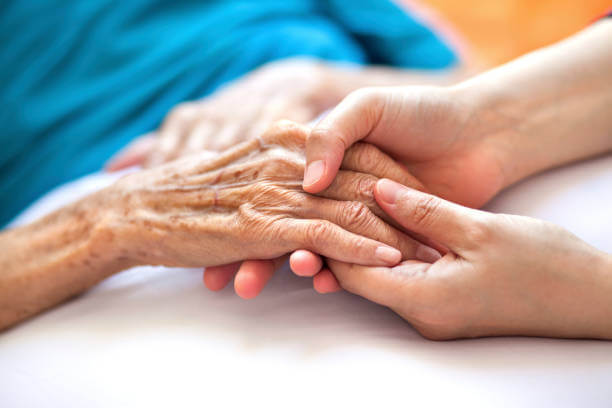Sinus trouble, constant throat clearing, nasal congestion — these are symptoms seniors commonly present as the weather changes. The air gets drier and adequate hydration is always a challenge. Common allergens may affect the elderly more acutely and certain antihistamines, including diphenhydramine, the active ingredient in Benadryl, can cause anxiety and confusion in the elderly, and actually make the symptoms worse. What’s even more frustrating is that alergens can be found in the home year-round.
Scrubs Magazine, the leading lifestyle nursing magazine, has identified 14 surprising places in the home where one can find irritants lurking. If you or your senior client or family member is sneezing, wheezing or otherwise showing signs of allergic reactions, check these culprits:
Sheets On Bed
Permanent press sheets can have formaldehyde. Choose untreated clothing and bedding made of natural or organic fibers when possible.
Flaking Paint
Homes and apartments built before 1978 have paint with high levels of lead. Clean paint chips immediately, repaint the surface, keep children from scratching, chewing, or touching painted surfaces, and have your home tested for lead.
Dog/Cat
Make the bedroom a ‘no pet’ zone. Run a HEPA air cleaner in your bedroom. Be sure to groom your pet regularly.
Dry Cleaning
When bringing home fresh dry cleaning, be sure to remove it from its protective plastic bag and air it out outdoors for several hours, or until the chemical odor has completely dissipated.
Carpet
Vacuum frequently and thoroughly – passing the vacuum four times over each area. Dust mite powder and flea control powder are also helpful in reducing allergens.
Mattress
By law, most mattresses have flame retardant chemicals. Your best bet to avoid both chemicals and dust mites? Switch to a fire-retardant free solid memory foam mattress or latex mattress. Note: You may need a prescription from your doctor to buy one.
Cosmetics
Opt for fragrance-free, organic and hypo-allergenic cosmetic brands. Be sure to replace makeup on a regular basis (application sponges each week, liquid makeup every three months, lipstick every six months, etc.), as old makeup can harbor harmful bacteria.
Deodorant
Avoid brands that contain fragrances, baking soda (if you have a nickel allergy), essential oils and biological additives, parabens, vitamin E, and lanolin. Opt for hypoallergenic brands and alternative deodorants such as crystal products.
and in the kitchen...
Mold
Fix leaky plumbing immediately. Thoroughly clean all surface molds. Dry water-damaged areas immediately.
Dirty Dishes
If you have a cockroach allergy, note that the highest concentration of cockroach allergens are in kitchens. Do not leave dirty dishes nor water in cups, glasses and bowls overnight.
Inadequate Ventilation
Install an exhaust fan or crack open a window when cooking. Improve air quality by installing an air conditioner or humidifier. Be sure your air ducts are cleaned regularly.
Insecticides
Certain ingredients in insecticides may trigger allergic reactions including acute asthma attacks. Buy only organic fruits and vegetables. Use organic, chemical-free produce spray, and watch for any insecticide in your pet shampoos.
Cleaning Solutions
Opt for gentle yet effective cleaning solutions with more natural ingredients and avoid those with harsh chemicals and odors. Note: If you are removing mold, you should use cleaner without ammonia and with at least 5% chlorine (which is irritating to skin and eyes).
Senior caregivers can gain more caregiving health and safety skills by taking a 10-hour online Caregiver Certification training course. Caregivers and C.N.A.’s may apply for a caregiving job in their area to begin a career in senior care.








